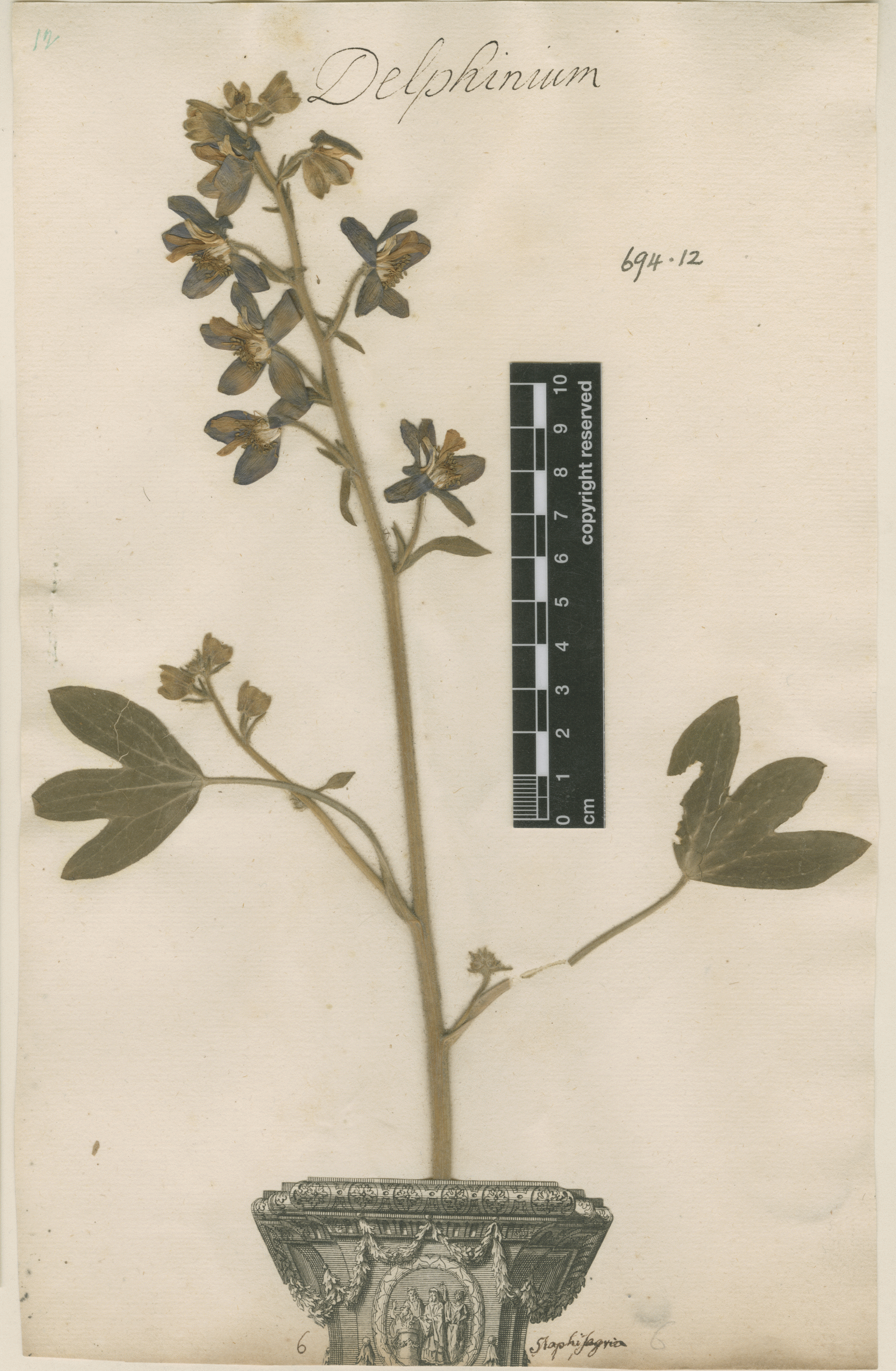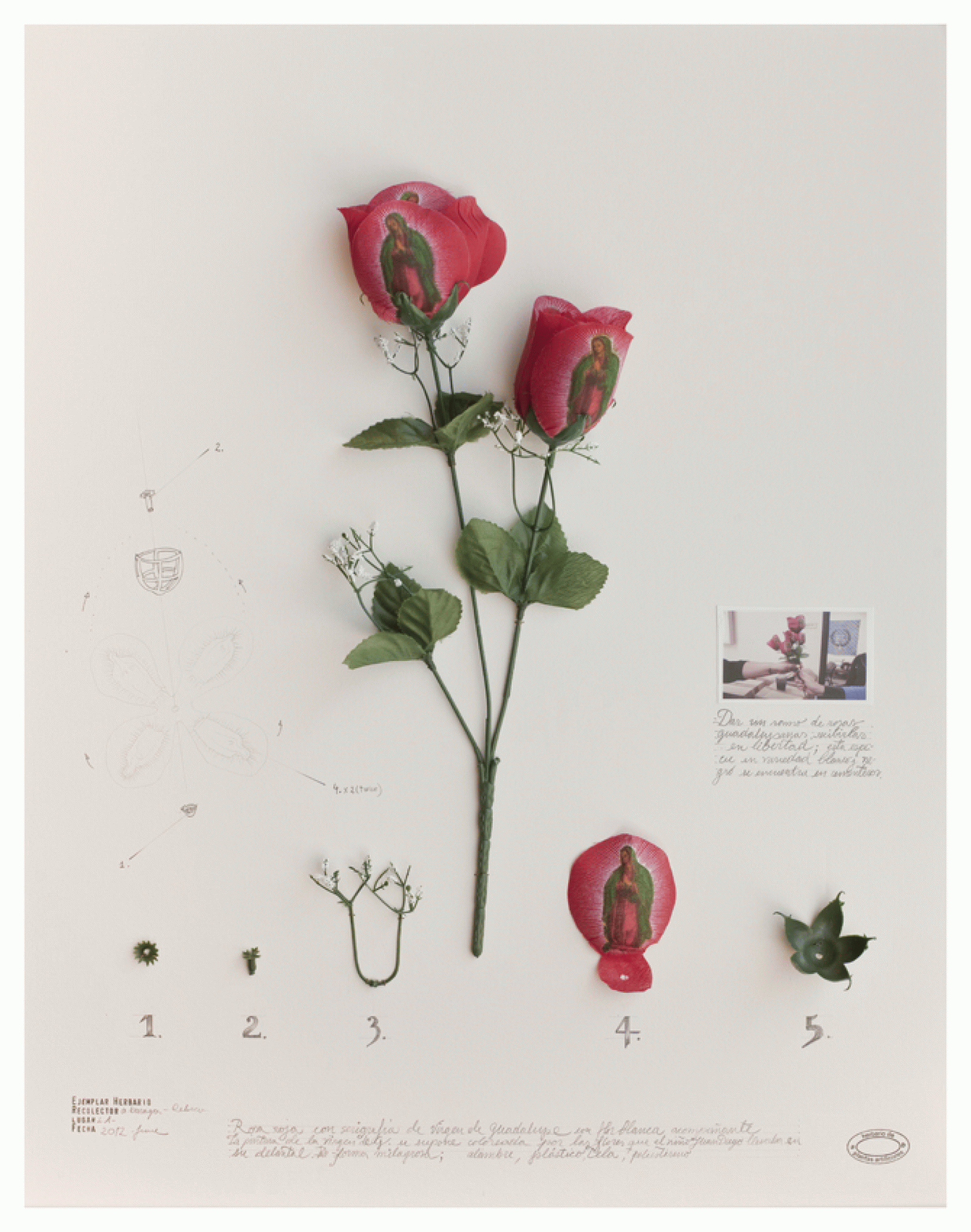4A Lab Seminar
Judith Elisabeth Weiss: Plants in a Box. The Herbarium as Object of Knowledge and Art

Carl von Linné, Delphinium staphisagria, first description 1753, © The Linnean Society London
The project focuses on the herbarium as an object of knowledge and art - a topic that has received little attention in the field of cultural studies to date. This is surprising, since the herbarium is not only a scientific instrument, but also an epistemic thing and, as such, should be read in its cultural and historical context. Scientific herbaria were (and still are) typically employed for the preliminary description and classification of plants, and for determining their place in the taxonomic system. In addition, the display of botanical specimens often serves as a metaphor and figure of thought in art, literature, and philosophy. The herbarium is experiencing a true renaissance in contemporary art, where it is presented as a showcase for critical reflections. In this contexts, it lends itself to be read - for example - as an instrument of power for a uniform representation of knowledge. Questions also arise about the function of herbaria as placeholders of the world's vegetation. This talk will shed light on the intersectionality of nature and culture in contemporary displays of botanical specimens, and will discuss the role of the herbarium as a repository of collective experiences across four main domains: aesthetics, science, politics, and archive.
Judith Elisabeth Weiss studied Cultural Anthropology, Art History, and Comparative Literature in Mainz and Tübingen and received her PhD from the University of Heidelberg with an interdisciplinary thesis on art in a gloabl context. She has carried out civil project work in Israel and India. From 1999 to 2011, she has worked in several museums both in the field of cultural management and as a curator for modern and contemporary art. From 2011 to 2020, she was a postdoctoral researcher at the Leibniz Centre for Literary and Cultural Research in Berlin. Her most recent publication, Disziplinierung der Pflanzen: Bildvorlagen zwischen Ästhetik und Zweck (Berlin, Deutscher Kunstverlag, 2020), is a study on the cultural and artistic significance of plants.

Alberto Baraya, series Herbarium of Artificial Plants, since 2012, © Galeria Nara Roesler, São Paulo
19. April 2021, 16:00 Uhr
Online 4A_Lab Seminar
The event takes place online.
For KHI-externs: A registration for the Online Seminar can be made via 4a_lab@khi.fi.it
Hinweis
Diese Veranstaltung wird durch Fotografien und/oder Videoaufnahmen dokumentiert. Falls es nicht Ihre Zustimmung findet, dass das Kunsthistorische Institut in Florenz Aufnahmen, auf denen Sie erkennbar abgebildet sein könnten, für die Veranstaltungsdokumentation und Öffentlichkeitsarbeit (z.B. Social Media) verwendet, bitten wir um eine entsprechende Rückmeldung.


